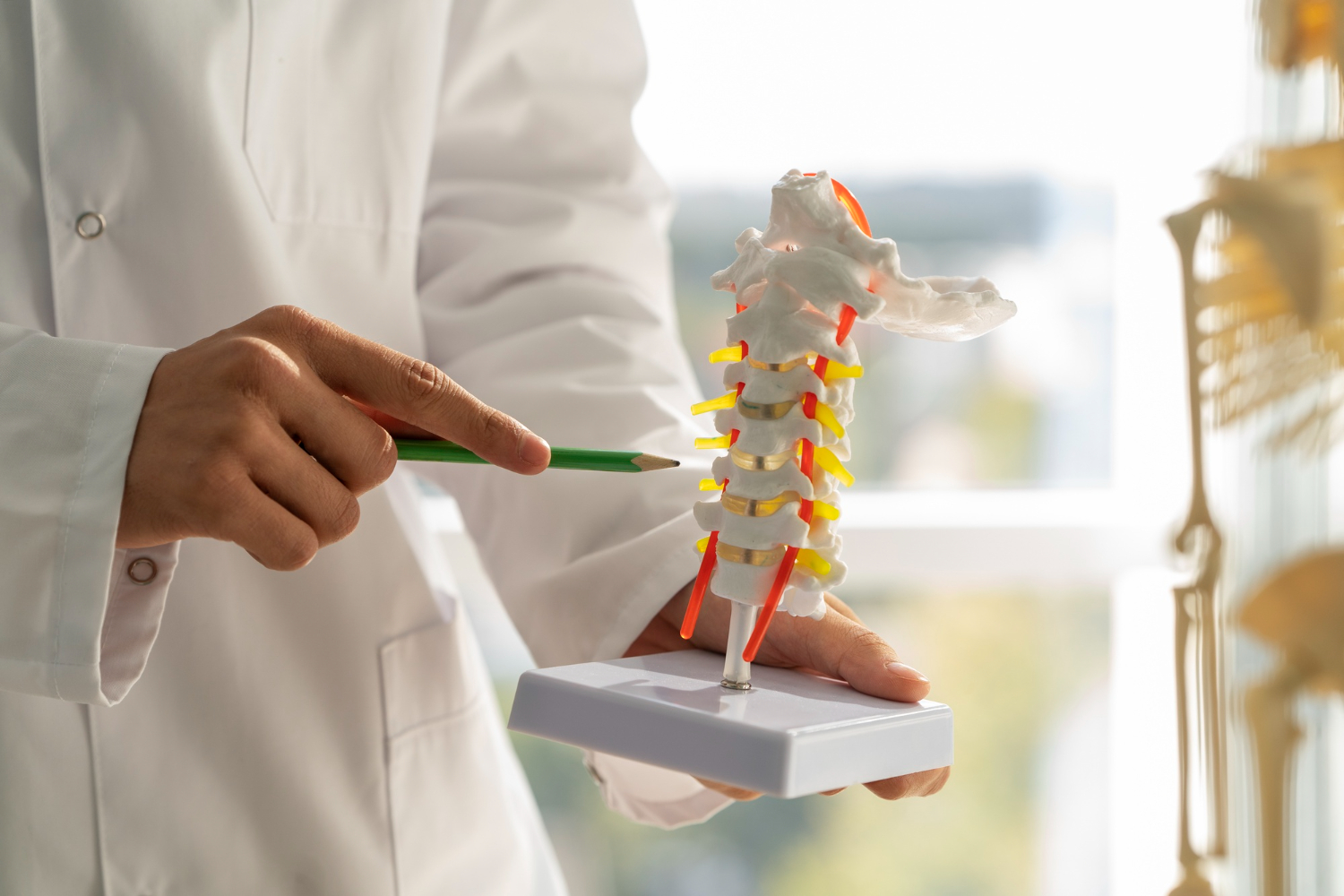Nerve Compression Specialist In Singapore

Dr Wang Lushun
Senior Consultant Orthopaedic Surgeon
MBBS (Singapore)
MRCS (Edin)
MMed (Ortho)
FRCS (Ortho) (Edin)
- Enjoy daily activities without pain and discomfort through nerve compression treatment
- Fellowship-trained orthopaedic surgeon
- Internationally recognised, more than 1500 surgeries performed



What are Nerve Compressions?
Nerve compressions, or pinched nerves, occur when pressure is applied to a nerve by surrounding tissues, bones, or tendons. This condition is more likely to affect those with repetitive stress injuries, obesity, or conditions like arthritis and diabetes. Without proper treatment, nerve compressions can lead to the following:
- Worsened pain and numbness in affected area
- Increased risk of nerve damage
- Decreased muscle strength and function
- Lowered quality of life due to chronic discomfort
Signs You May Have Nerve Compression
Symptoms of nerve compression may not be apparent right away. If you’re experiencing the following, consult an orthopaedic specialist. Here are some signs of nerve compression. It's important to recognise the signs early, so you can seek proper treatment. Here are some common signs of nerve compression:
Numbness or tingling
This happens because the compressed nerve can't transmit signals properly, resulting in a loss of sensation or a "pins and needles" feeling.
Sharp or burning pain
When nerves are compressed, they can send pain signals, causing sharp or burning sensations in the affected area.
Muscle weakness
As the compressed nerve affects muscle function, you may notice a decrease in strength or difficulty performing certain tasks.
Worsening symptoms at night
Many people experience more pronounced symptoms at night due to increased pressure on the affected nerve when lying down or sleeping.
Reclaim your mobility and live life pain-free
with personalized nerve compression treatment.
with personalized nerve compression treatment.
Improve your muscle strength and range of motion while reducing the chance of further injury and complications.
Treat your nerve compression and experience pain-free, unrestricted movement again.
Am I A Candidate for
Nerve Decompression Surgery?
Consult with an orthopaedic specialist so they can assess your condition. To determine whether surgery is the best option for your case, your doctor will evaluate the following factors:


When Is The Best Time To Have Nerve Decompression Surgery?
The optimal time to have nerve decompression surgery varies based on several factors, including the severity of your symptoms, your overall health, and your response to conservative treatments. Generally, surgery is considered when you've tried non-surgical options without significant improvement, your symptoms are severe or worsening, or if there's a risk of permanent nerve damage or loss of function.
The decision to undergo surgery ultimately falls on your orthopaedic surgeon, who'll evaluate your circumstances and determine the best course of action for your specific condition.
How is nerve compression diagnosed?
Nerve compression is diagnosed through a combination of physical examination, patient history, and imaging studies like X-rays, MRI, or CT scans. These tests help the specialist identify the location and cause of the compressed nerve.
When is surgery necessary for nerve compression?
Surgery for nerve compression is considered when conservative treatments fail to provide relief, symptoms are severe or worsening, or if there is significant nerve damage or loss of function. Surgical options may include decompression surgery, spinal fusion, or joint replacement, depending on the location and cause of the compression.
Nerve Decompression Surgery Recovery Process
| Recovery Period | What to Expect: |
|---|---|
| First few days after surgery (1-2 days): |
|
| First few weeks (Week 0-2): |
|
| Several weeks after surgery (Week 2-6): |
|
| First few months after surgery (Week 6-12): |
|
| Several months after surgery (12 weeks onwards): |
|


Dr Wang Lushun
Senior Consultant Orthopaedic Surgeon
MBBS (Singapore)
MRCS (Edin)
MMed (Ortho)
FRCS (Ortho) (Edin)
Internationally Recognised & Double Fellowship-Trained Surgeon With Over 18 Years of Experience
- Bachelor of Medicine & Bachelor of Surgery (MBBS),
National University of Singapore - Member of The Royal College of Surgeons (MRCS),
Edinburgh, United Kingdom - Master of Medicine in Orthopaedic Surgery (MMed),
National University of Singapore - Fellow of The Royal College of Surgeons in Orthopaedics and Traumatology (FRCS), Edinburgh, United Kingdom
As a Senior Consultant Orthopaedic Surgeon and former Head of the Hip and Knee Division in Ng Teng Fong Hospital, he has won awards for superior patient outcomes (value driven), service quality and enhanced recovery programmes. His patients include current and former national athletes and sporting professionals.
Why Choose
Dr Wang Lushun?
Trusted
Leadership on Orthopaedic Advisory Boards
Skilful
Double Fellowships at Centres of Excellence
Experienced
Senior Consultant with Over 18 Years of Experience
Can I Use Medisave For Nerve Compression Surgery?
Yes, you can use funds from your Medisave account to offset the cost of certain nerve compression treatments.
Reach out to us today to learn more about payment options.
Patient-Centred Orthopaedic Care
We are dedicated to your recovery and well-being. Every patient deserves the freedom that comes with active living. Whether you're an athlete sidelined by an injury or a weekend hobbyist desperate to return to your passion, our mission is to help you regain your mobility and independence.
Personalised Approach For Positive Outcomes
Our clinic prioritizes time dedicated to understanding each patient’s injuries and needs. Dr Wang strongly believes that personalised care & patient management will lead to better outcomes & positive experiences.
Minimally Invasive Techniques For Faster Recovery
Dr Wang’s extensive experience with minimally invasive procedures allows for less scarring, lower risk of complications and faster recovery compared to traditional surgical methods.
Aftercare Focused On Restoring Mobility & Well-Being
As an avid sportsperson, Dr Wang understands the time and patience required to regain mobility and return to active living. After your procedure is completed, Dr Wang will make sure your recovery is smooth and comfortable.
Insurance
We accept all patients, with or without insurance plans. Additionally, we are on the specialist panels of these Health Networks/Insurance Plans. Please contact us if you have any queries and we will be happy to assist you in checking with your insurance provider.
Our Clinic Locations
3 Mount Elizabeth, #13-14
Mount Elizabeth Medical Centre
Singapore 228510
820 Thomson Road, Mount Alvernia Hospital, #05-51, Medical Centre D, Singapore 574623
Frequently Asked Questions
What causes nerve compression?
Nerve compression occurs when a nerve is pinched or pressed by surrounding tissues, bones, or tendons, often due to inflammation or structural abnormalities. Common causes include repetitive stress injuries, obesity, arthritis, herniated discs, and bone spurs.
Can nerve compression go away on its own?
Mild cases of nerve compression can sometimes resolve on their own with rest, activity modification, and over-the-counter pain relievers. However, more severe cases or persistent symptoms typically require professional treatment.
Are there any complications associated with nerve compression treatment?
Complications of nerve compression treatment are generally rare but may include infection, bleeding, or adverse reactions to medications. In surgical cases, there may be risks of nerve damage, anaesthesia complications, or unsuccessful treatment outcomes.
Can nerve compression lead to permanent damage?
Untreated nerve compression can lead to permanent nerve damage, causing chronic pain, loss of sensation, and muscle weakness. Early diagnosis and appropriate treatment are crucial to prevent permanent damage and maintaining function.
Will I need physical therapy after nerve compression treatment?
Physical therapy is often recommended following nerve compression treatment, especially after surgery, to help restore strength, flexibility, and function. A tailored rehabilitation program will be designed to meet your individual needs and speed up the recovery process.